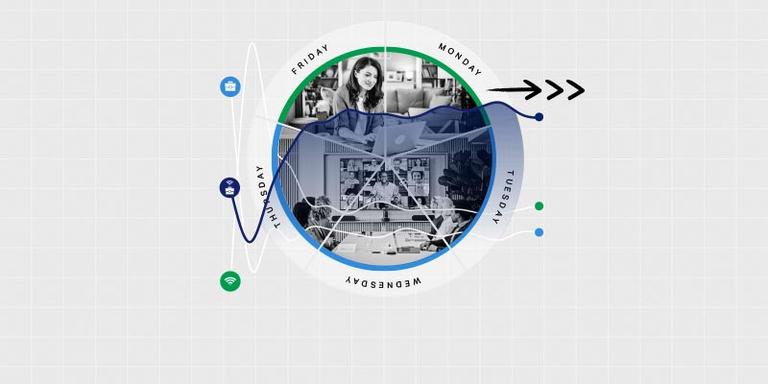Results for the Gallup poll of U.S. employees are based on self-administered web surveys of a random sample of adults who are aged 18 and older, working full time or part time for organizations in the United States, and members of the Gallup Panel. Gallup uses probability-based, random sampling methods to recruit its Panel members. Gallup weighted the obtained samples to correct for nonresponse. Nonresponse adjustments were made by adjusting the sample to match the national demographics of gender, age, race, Hispanic ethnicity, education and region. Demographic weighting targets were based on the most recent Current Population Survey figures for the aged 18 and older U.S. population. In addition to sampling error, question wording and practical difficulties in conducting surveys can introduce error or bias into the findings of public opinion polls.
Gallup defines “exclusively remote” as employees working from home or a remote location 100% of the time. “Hybrid” employees are those who work from home or a remote location 10% to less than 100% of the time. “On-site” employees work from home or a remote location 0% to less than 10% of the time.
In line charts on this webpage, Gallup labels some data points with a year and month. Years that have only one data point labeled with the year and "Jan" (abbreviated for "January") reflect annual survey results. Years that have one data point labeled with a specific month besides January or that have multiple data points labeled with specific months reflect results obtained during the noted month(s). When Gallup’s survey field dates for one data point occur in more than one month, Gallup labels the data point with the ending month.
The Gallup Q12 items are Gallup proprietary information and are protected by law. You may not administer a survey with the Q12 items or reproduce them without written consent from Gallup. Copyright © 1993-1998 Gallup, Inc. All rights reserved.


